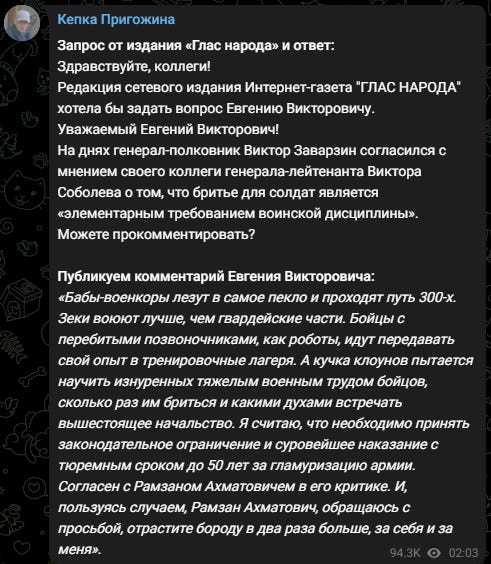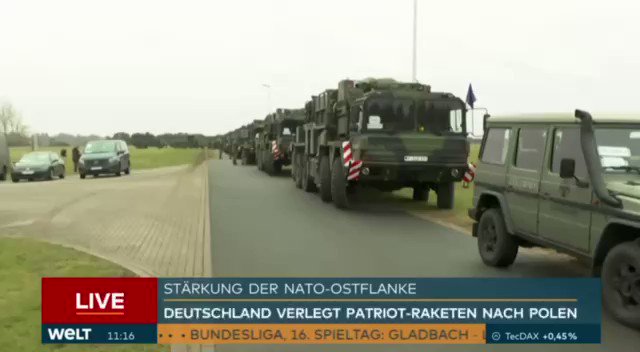Jan 23: Buonasera Mag
Day 334: Bakhmut Zapo Peskov Wagner Lavrov CH $300B 500M POL LAT Boris Morocco McGonigal- A&Ps- UAWorld ISW UKDef Rosenberg Davis UATV Radpod Giles Weiss Lautman Lee Patrik
Catching up
Hop over the Scott Lucas’s EA Worldview for the latest up-dates from the US and the Middle East as well as Europe.

Stories we’re following…
The General Staff: "The enemy is concentrating its main efforts on conducting an offensive in the Bakhmut direction. They conduct unsuccessful offensive actions in the Zaporizhzhia, Avdiivka and Lyman areas. On Kupiansk, Novopavlivka and Kherson areas they are defended."
Southern Command: Ukraine repels limited Russian offensives in Zaporizhzhia Oblast. The Russian forces “are not conducting active and large-scale efforts,” spokesperson for the Ukrainian Armed Forces' Southern Command Yevhan Yerin said on national television, as quoted by state-owned news agency Ukrinform.





Ukraine's military creates new units to equip with Western military hardware. “We are creating new military units. And our next actions will depend on their combat readiness. Therefore, Western assistance is extremely important,” the Joint Forces Commander Lieutenant-General Serhii Naiev told CNN.
Russian forces are looting Ukrainian hospitals. Most recently, the Russians stole ALL equipment from the Skadovsk Central Hospital in the Kherson Oblast. The National Resistance Centre warns that this will worsen the humanitarian crisis among the local civilian population.
UK Defense Ministry: Russia ‘highly likely’ to struggle with planned army expansion. “The Russian leadership highly likely assesses that an enhanced conventional military threat will endure for many years beyond the current Ukraine war.
The Kremlin has warned that the people of Ukraine will “pay the price” if the west decides to send tanks to support Kyiv. Kremlin spokesperson Dmitry Peskov said the splits in Europe over whether to provide tanks to Kyiv showed there was increasing “nervousness” within the Nato alliance. Peskov also dismissed Washington’s announcement that it was planning to impose sanctions on the Russian private mercenary Wagner Group.
NGO: Most convicts recruited by Wagner killed, wounded or deserted. Of the 50,000 convicts recruited by Wagner Group from the Russian prison system, only 10,000 remain in the ranks of the military, according to Olga Romanova, head of Russia Behind Bars, an NGO.

FM Lavrov has said Moscow was willing to negotiate with Ukraine in the early months of the war but the US and other western nations advised Kyiv against it. Lavrov was speaking during his visit to South Africa, where he met with foreign minister, Naledi Pandor, a month before the South African military is set to host a joint military exercise with Russia and China on its east coast.
What burned best in Russia, 2022: analytics and forecasts by Molfar. Most often Russian factories and industrial facilities, shopping and entertainment centers and oil storage facilities were burning. Explosions on Russian gas pipelines were also accompanied by fireworks. Interestingly, the Russian Emergencies Ministry in its reports and statistics for 2021, for example, does not include fires in factories, warehouses, shopping malls. Only if there were explosions during fires. Probably, the statistics for 2022 will be no exception. But we will help them to compile that report.

China supplies metals to the EU for shells through the territory of the Russian Federation. According to Bloomberg, China supplies the EU with rare earths needed for the production of microchips, electronics and ammunition through Russia.
EU Council president Charles Michel has urged the bloc’s national leaders to push forward with talks on using $300bn-worth of confiscated Russian central bank assets for the reconstruction of Ukraine, the Financial Times reports.
The EU has ratified a new military aid package to Ukraine worth €500m. The €500m package was approved along with a further €45m for “non-lethal equipment” for the EU’s military training mission for Ukraine, sources told Reuters. Earlier, Hungary’s foreign minister, Péter Szijjártó, said his country would not block the EU move.

PM Mateusz Morawiecki, said during a press briefing that his country was ready to build a “small coalition” of states to send Leopard tanks to Ukraine, even without Germany’s consent. “We will ask Germany for permission … but this is of secondary importance,” said Morawiecki.
Latvia's foreign ministry said Monday that Russia's ambassador must leave by February 24, attributes move to Moscow's ongoing aggression against Ukraine and as a gesture of solidarity with EU/NATO neighbors Estonia and Lithuania
FM Annalena Baerbock’s comment on Sunday that her country would not “stand in the way” of Poland sending Leopard tanks to Ukraine has caused some confusion in Berlin. For now, it remains unclear whether her remarks are indicative of a shift in the government’s position or merely a Green party attempt to correct the chancellor Scholz’s bungled communication strategy.

Ex-British PM Johnson visits Kyiv suburbs, meets with Zelensky. Johnson, who's been out of office since September, made an unannounced visit to two war-torn cities outside of Kyiv, Bucha and Borodianka, on Jan. 21.
Morocco sends Soviet-made tanks to Ukraine. Morocco has sold an unknown number of T-72B battle tanks to Ukraine, the Menadefense news site reported on Jan. 22.
A former top F.B.I. official was charged with money laundering. He is accused of taking payments totalling $225,000 in cash from a Russian oligarch to investigate a rival.The former official, Charles McGonigal, who had been the special agent in charge of the F.B.I.’s counterintelligence division in New York before he retired in 2018, had supervised and participated in investigations of Russian oligarchs. McGonigal tried to get Oleg Deripaska removed from the sanctions list.


Michael Weiss & James Rushton, How Germany's ‘Doctor No’ disrupted allied unity on tanks for Ukraine- Yahoo News
“Foreign observers come to wonder whether the German government even has the slightest perception of the level of diplomatic isolation Germany is in,” Nathalie Vogel, a senior fellow at the Prague-based European Values Center for Security Policy. “The nomination of Pistorius comes as one more proof that the Chancellery is either irresponsible or very poorly informed. Pistorius has a long track record of highly debatable positions on Russia as member of the German-Russia Friendship Group. Two years after the attack on Ukraine in 2016, he was still holding bilateral talks in order to engage Russia.”
Vogel added that one reason for Germany’s self-contradictory (and self-flagellating) policymaking on Ukraine is that the government is heavily siloed along partisan or ideological lines. Scholz maintains a team of his own hand-selected foreign policy advisers, culled from the ranks of his Social Democratic Party, who work independently of the German Foreign Ministry, which is controlled by the Green Party. The environmentally-driven Greens see Moscow, and the Kremlin’s weaponized export industry for gas and oil, as an international security threat to Europe; as such, they’ve been far more bullish on helping Ukraine fend off its invaders. “If this were up to the Greens,” Vogel said, “Ukraine would already have Leopards.”

Olga Lautman & Jeff Stein, Putin’s Ukraine Folly Enables Kremlin Rivals- SpyTalk
Wartime losses aggravating tensions with army, security services, Wagner Group.
AS WE NEAR the one-year anniversary of Russia’s all-out assault on Ukraine, the political fractures inside Russia are on public display—among the Moscow elite, the Wagner mercenary group, the intelligence services, the official propagandists and the Russian Defense Ministry. The “special operation” that Vladimir Putin expected to take three days is now bleeding into an eleventh month of setbacks and atrocities, exposing the Kremlin’s vaunted military might as both ineffective and cruel, with its strategy of targeting civilians with artillery and executions to break Ukrainians’ will and force Kyiv into surrendering. The strategy is failing, however, as millions of its citizens remain defiant and resilient despite the ongoing onslaught of terrorist attacks.


Galavits Patrik, How Viktor Orbán decided to arm Hungary- Direkt36
In a tense atmosphere, a leadership meeting took place in late 2010 at the Ministry of Defense’s Balaton Street building in Budapest. In the ornate ministerial meeting room, opened only on rare occasions, Tibor Benkő, then chairman of the Joint Chiefs of Staff, and some of his colleagues gave a presentation on the state of the Defense Forces. Minister Csaba Hende and about 30 ministry staff and military leaders were present.
The presentation was based on a document of several hundred pages, which painted a devastating picture of the country’s defense capabilities. Benkő and his colleagues told the people sitting around the long conference table that the guarding of obsolete and depreciated equipment alone was costing 15 million HUF a month, there was talk of potential operational problems due to the flying hours of Gripen aircraft, and it was also said that the Hungarian defense forces would not be able to defend the country in their current state. Indicating the seriousness of the problem, Benkő said that it was calculated that the equivalent of the ministry’s 20-year budget would be needed to recover the “lost capabilities.”






